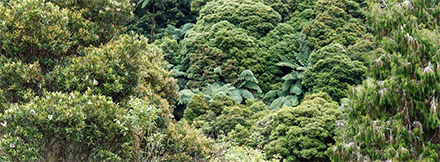New Zealand’s Forest Owners Association says the just released Emissions Reduction Plan is a welcome and unprecedented blueprint for reducing New Zealand’s gross emissions. Source: Timberbiz
But the Association is warning that a huge emphasis in the ERP on planting native trees ignores how urgent it is to deal with the climate change crisis.
Forest Owners Association President Grant Dodson says he, and just about every other New Zealander, are fans of native trees and would like to see more of them planted.
“They are our original land cover. Indigenous trees are deeply imbedded in our culture. Species, such as rimu, kauri and pūriri are fantastic trees and produce great timber and wood.
“But native trees are not capable of reducing our net emissions in any substantial degree this side of next century. They grow too slowly.
“In many cases, expectations of carbon sequestration from natives are overstated in the current official data tables. That makes the problem worse.
“It’s a fact of life that exotics, such as pines or eucalypts, do a much faster job of locking up atmospheric carbon. That’s why the Climate Change Commission last year budgeted another 380,000 hectares of additional exotic planting by 2035.
“Native trees are a decoration in climate change efficiency terms. A great decoration to be true. But a decoration, nonetheless. In fighting climate change, we need tools – not decorations,” Mr Dodson said.
“We could plant enough huge areas to get some carbon volumes from native trees earlier than the year 2100. But I’m sure farmers wouldn’t like millions of hectares of farmland going into kowhai or tutu.
“It’s also hugely expensive and difficult to establish forests of mixed native trees. Browsers, such as possums eat them. Weeds, such as old man’s beard, grow all over them.”
Mr Dodson said that future planting was always going to be a mix of both native and exotic.
He said native trees had their place.
But there was a huge income opportunity for farmers from fast growing exotic trees.
“There are very compelling economic benefits to New Zealand if we diversify farm revenues this way,” Mr Dodson said.
“We especially welcome the government’s plan to expand forestry extension services and invest in bioenergy. But we seriously caution the focus on native plantings as a way to help solve the climate emergency.”






